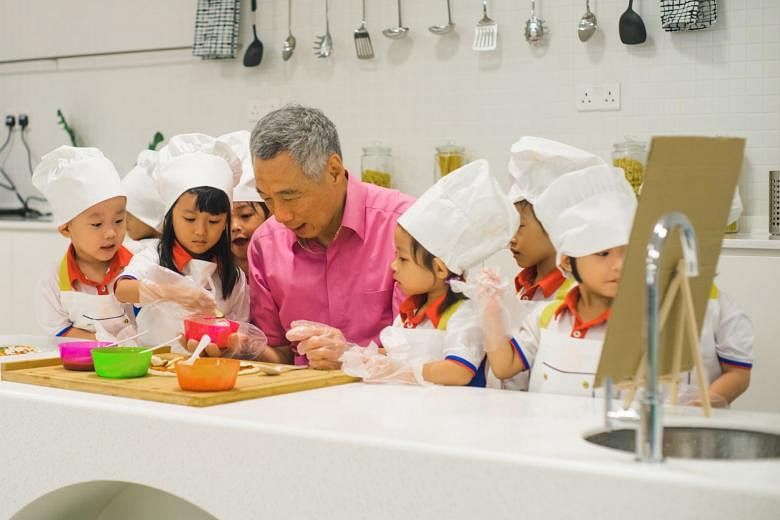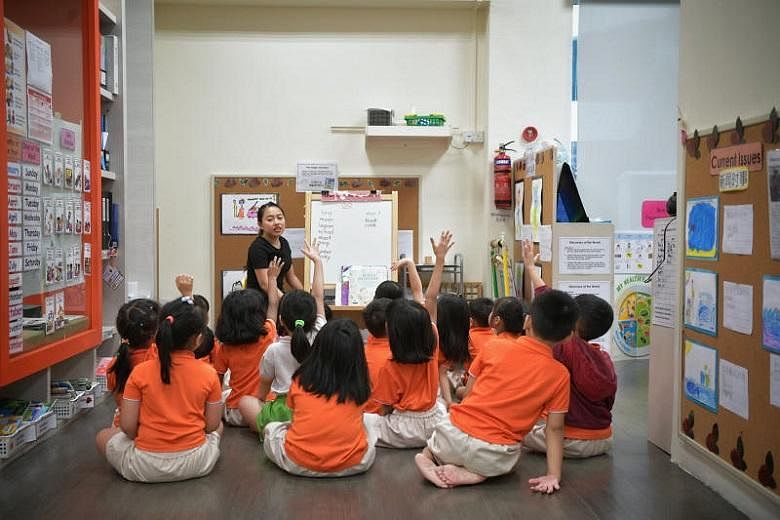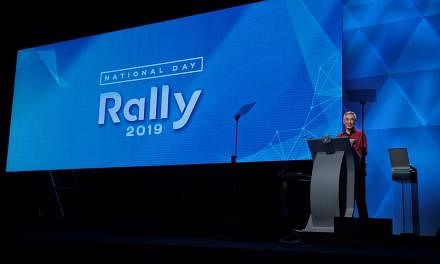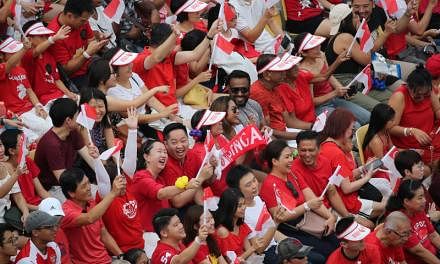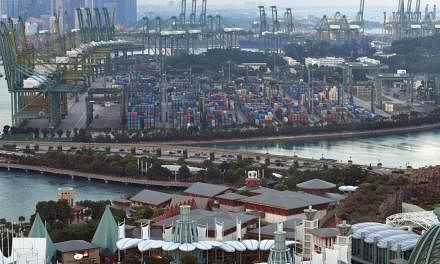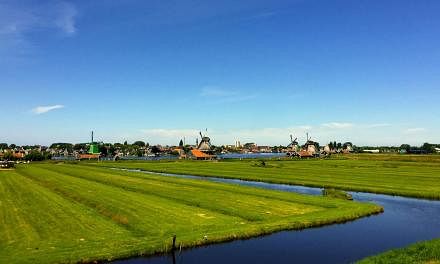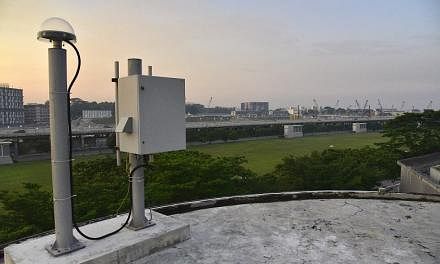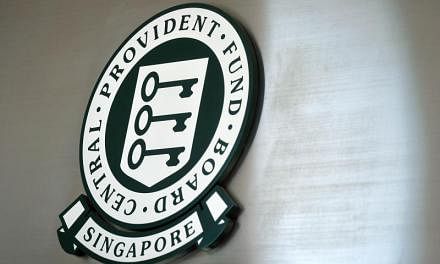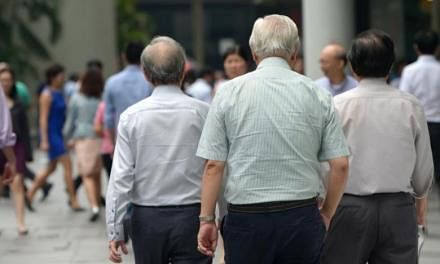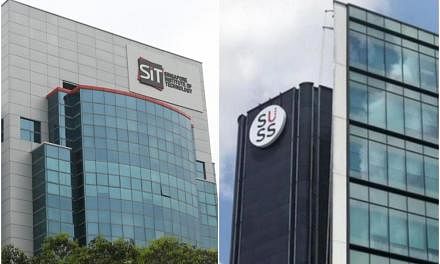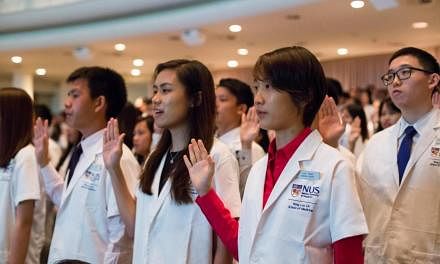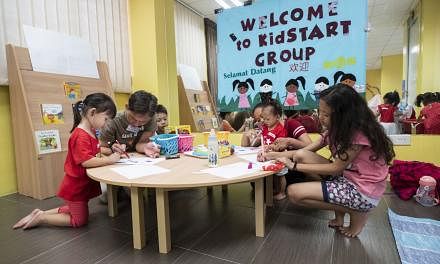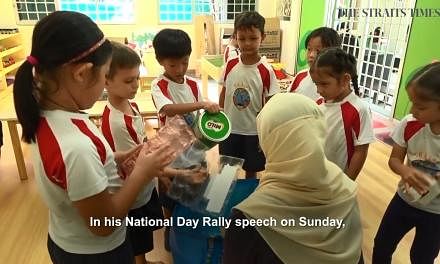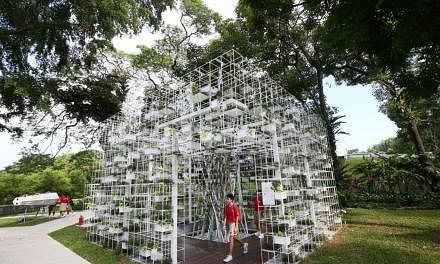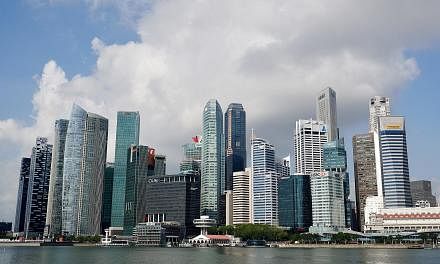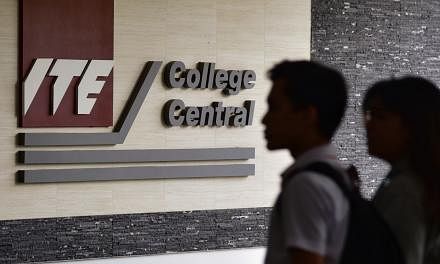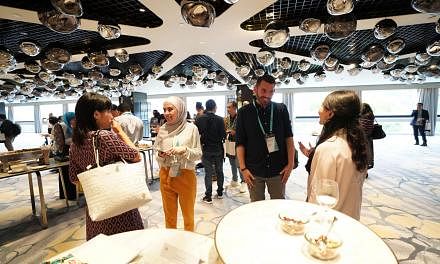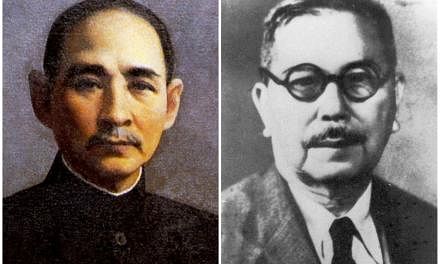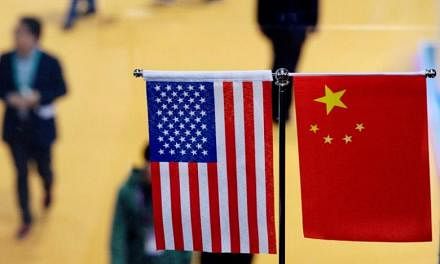SINGAPORE - Pre-school education costs will come down for more families, as the Government raises the monthly income ceiling for additional subsidies from $7,500 to $12,000 and increases the quantum of the subsidies.
This means 30,000 more households will qualify for the subsidies starting next year.
In the medium term, full-day pre-school expenses should be brought down to around $300 a month - the same as the cost of primary school plus after-school student care, Prime Minister Lee Hsien Loong announced on Sunday (Aug 18) as part of the Government's plan to make quality early-years education more affordable to give Singaporeans the best possible start in life.
He referred to a survey done by PAP women MPs which showed that parents were concerned about the affordability of pre-school education, and agreed with the MPs who have called for a "government-funded option" in the sector, just like in housing and healthcare.
"For housing, we have HDB. For healthcare, we have restructured hospitals. Similarly, for pre-school, we should have good quality, government-supported choices available to all Singaporeans," said Mr Lee, announcing that in the future, 80 per cent of pre-school places will be government supported.
Today, just over 50 per cent of all places are government supported, including those offered by MOE kindergartens, as well as privately run centres which come under the Anchor Operator Scheme and Partner Operator Scheme, where the operators receive government funding to keep their fees low.
Mr Lee said the starting point used to be Primary 1, but now much of the research evidence shows that pre-school education can make a big difference to a child's development.
That's why the Government made the shift several years ago to raise the quality of pre-school education and make it more accessible and affordable.
Although the Government gives significant subsidies for childcare, with lower-income parents receiving substantially more, for middle-income parents, pre-school fees can take up a large chunk of their household budget, said Mr Lee quoting the example of Mr and Mrs Low Soon Hon who have two children, aged five and two.
He went on to announce raising the income ceiling for means-tested subsidies, as well as the quantum.
This means that the Lows will pay only $370 per child every month, as opposed to $560 that they fork out for each child currently. More details will be announced by the end of this month.
PM Lee also noted that full-day pre-school capacity has been doubled since 2012 to almost 180,000 places, providing enough places for every child aged three and above.
"Young parents in newer estates like Sengkang and Punggol are happier. Their MPs too, because the queues have shortened," said Mr Lee, referring to the long registration queues for pre-schools in the two HDB estates and Meet-the-People sessions.
The sector as a whole has been upgraded, in part due to the Ministry of Education taking the lead and setting up 24 kindergartens to date.
As announced previously, the number of MOE kindergartens which were set up with the aim of raising standards across the sector will more than double over the next few years.
MOE kindergartens have also established a new pre-school model where each kindergarten is located together with a primary school and they are able to offer all three official mother tongue languages.
Another area where standards have been raised is in teaching, as pre-school teachers have better training and career progression with the setting up of the National Institute of Early Childhood Development (NIEC). This has raised the standing of teachers in the sector.
Mr Lee said the Government currently spends $1 billion a year on childhood education, and this will more than double over the next few years.
Hopefully, with all these improvements, parents will no longer think of pre-school as an expensive phase of bringing up their children, said Mr Lee. He added that younger ministers have come up with more ideas to support couples in having more children, which he will announce in the course of time.
"Meanwhile, I will be counting the number of babies born, and hoping for the number to go up," he said to much laughter.
